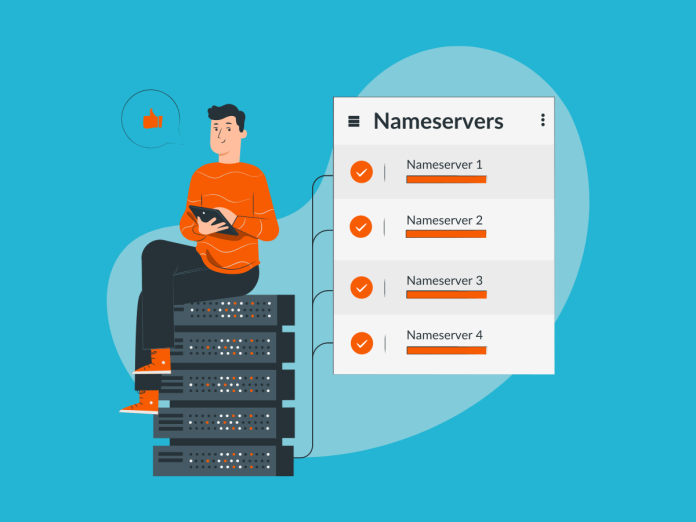If you’re delving into the world of websites and hosting, you’ve likely come across the term ‘nameserver.’ As of late 2023, there are over 359 million registered domain names globally. Nameservers play a crucial role in managing these domains and ensuring seamless navigation.” But what exactly is a nameserver, and how does it impact your online presence? Fear not, as we embark on an insightful journey into the realm of nameservers, exploring their role in the intricate web of domains, DNS, and hosting.
Table of Contents
What Is a Nameserver?
In simple terms, a nameserver is like the GPS of the internet. When someone types a domain name into their browser, nameservers guide the way, ensuring users reach the right online destination, aka web address. Essentially, a nameserver is a specific kind of DNS server that is tasked with linking the user-friendly domain names we enter into our web browsers with the matching IP addresses through the management of related DNS records.
When your domain is registered with a reliable partner like MCloud9, you’re essentially entrusting them with the task of managing these nameservers, ensuring that users can seamlessly navigate the web and discover what your business has to offer.
What Is DNS? Connecting Domain Names to IP Addresses
While nameservers direct internet traffic and manage the overall flow, they rely on the DNS, or the Domain Name System, to provide the detailed information needed for accurate navigation. DNS is the address book of the internet. It translates human-friendly domain names into IP addresses that computers understand. Imagine DNS as the translator ensuring seamless communication between your web browser and the server hosting a website.
Identifying Your Default Nameserver (NS) Records
Every website you want to visit has its own set of instructions, telling the internet where to find its associated resources. These instructions are the nameserver records for a domain, akin to a digital ID card for your domain. When you register a domain with a domain registrar or hosting provider these records are set up by default indicating the nameservers responsible for pointing your domain to your website.
You can view these default records by using a WhoIs Lookup tool or by accessing them through your domain registrar. MCloud9 makes it very easy to access and change your nameserver records directly through your Client Portal.
Setting up Name Servers Records for Your Domain
Usually, when you register a domain name you are provided with default records by the domain registrar; however, you can choose to enter custom name server addresses (if your website is hosted elsewhere). Once your domain is registered you can always modify these records later.
When you register a domain with MCloud9, you’ll find an intuitive dashboard where managing your nameservers is as easy as a few clicks. The user-friendly interface ensures that even those unfamiliar with the technical intricacies of nameservers can effortlessly navigate the setup process.
FAQ for Nameservers
What is a nameserver?
A nameserver is a server that is part of the Domain Name System (DNS), which translates domain names into the IP addresses of the web servers where the domain is hosted. In simpler terms, nameservers help us to find the nameserver addresses of the website hosting provider for a specific DNS, thus enabling us to visit a website using the browser bar.
How do nameservers work?
The main purpose of nameservers is to manage the DNS records of a domain and direct traffic across the internet by translating domain names into the corresponding IP addresses of web servers. This process, known as DNS lookup, is crucial for the functioning of the internet.
How do I change my nameservers?
To change your nameservers, you need to access your domain registrar’s client dashboard. Within the settings for your domain, there should be an option to update or change the nameserver details. Simply input the new nameserver addresses and save the changes to apply the update.
How can Cloudflare help with nameservers?
Cloudflare offers a content delivery network (CDN) and security solutions that also include nameserver services. By using Cloudflare’s nameservers, users can benefit from enhanced performance, security, and management features for their DNS records and web traffic.
In Conclusion
Nameservers are the backbone of the internet, guiding users to their desired online destinations. Understanding the synergy between nameservers and DNS empowers you to navigate the digital landscape confidently. As you embark on your online journey, having a reliable domain and web hosting partner like MCloud9 is akin to having a trustworthy co-pilot on your entrepreneurial flight.


